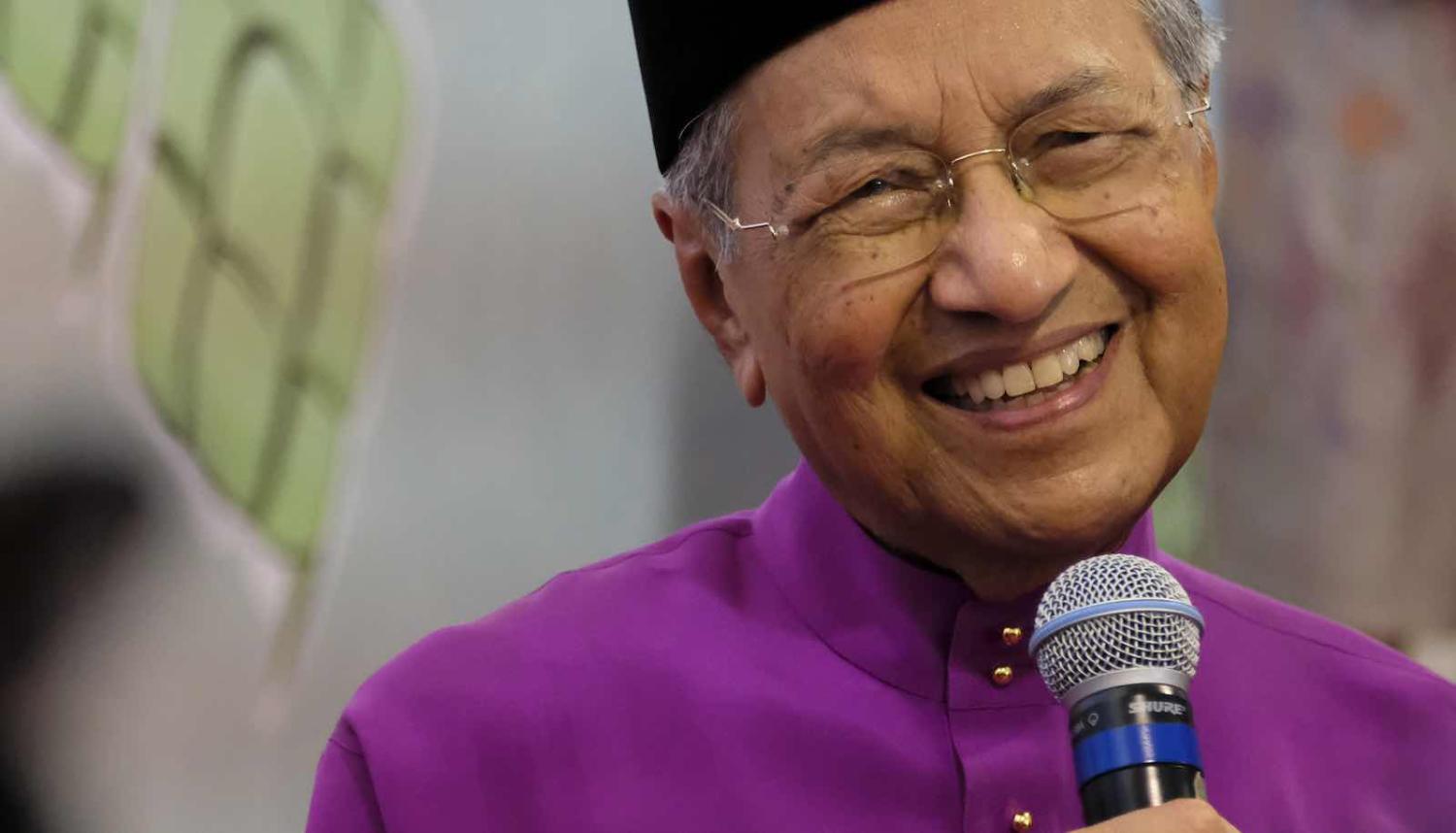While the world is watching Malaysia, trying to explain the unexpected victory of Pakatan Harapan (Alliance of Hope) in last month’s elections, what is actually more important is the massive clean-up currently underway in the country.
By clean-up, I mean a near-total replacement of all key people in the civil services, judiciary, security services, and in universities, and all political appointees in government-linked companies.
The underlying assumption is that these people, numbering close to 400, were the main enablers of former prime minister Najib Razak’s administration. They not only allowed Najib and the United Malays National Organisation (UMNO), the previous ruling party, to preside over the country without any checks and balances, but also, more importantly, they turned the entire Malaysian state into an entity similar to a branch of the UMNO political party.
Departure lounge
In the past month alone, many have left or are in the process of leaving their positions. The departures include the Chief Justice and President of the Court of Appeal, the two highest judicial posts in the Malaysian legal system. Both were past retirement age and had been appointed outside the normal procedures. At the time, their appointments were challenged by the Malaysian Bar Council and Advocates Association of Sarawak.
The Attorney General, the government’s main legal adviser, has also changed. The previous office holder famously cleared Najib of any wrongdoing in the multibillion-dollar 1MDB scandal only weeks after he was appointed. The new AG, Tommy Thomas, is a Christian, and his Indian-Malaysian background sends a powerful signal to the right-wing Malay groups who campaigned strongly against his appointment.
This is also notable as a major departure from Mahathir’s governing philosophy.
Others to go include the head of the anti-corruption agency, the Malaysian Anti-Corruption Commission, and the head of the Special Branch, which was involved in extensive surveillance and dirty operations against opposition parties during UMNO’s rule. The Inspector-General of Police, Malaysia’s top cop, is also expected to be removed in the next few weeks. His predecessor, who was overtly political, is now banned from leaving Malaysia.
The Governor of the central bank, Bank Negara Malaysia (BNM), has also changed, with the previous incumbent alleged to be involved in several deals that helped Najib cover up the 1MDB affair. The secretaries general of several ministries (similar to a permanent secretary in the UK civil service) will also be removed in the next few months, and the secretary general of the Finance Ministry has already been forced to resign.
The cull extends to top officials in government-linked companies and independent agencies, who will be replaced or forced into retirement.
Already the head of Telekom Malaysia (who played a key role in UMNO’s campaign) has resigned, as has the head of the Public Land Transport Commission and the chairman of the Federal Land Development Authority (FELDA), the most important agency that deals with land development for the rural Malay population. In the coming days, I expect the senior personnel from Khazanah Nasional Berhad (the sovereign wealth fund of the Government of Malaysia) and Maybank will be replaced as well.
Several vice chancellors of public universities will also be replaced soon, after some not only urged the public to support UMNO, but also appeared regularly in the media to attack the then opposition, Pakatan Harapan.
Institutional reforms
Taken collectively, these moves show that the new government wants to quickly remove all the senior people in the system who were either overtly pro-UMNO or helped Najib by doing nothing while holding a senior position.
But this is also notable as a major departure from Mahathir’s governing philosophy. During his first term as Prime Minister, from 1981 to 2003, Mahathir believed that in order to get things done in government, he had to centralise power in the office of the Prime Minister and the federal government as a whole.
During that era, the federal government doubled in size with the creation of a plethora of new agencies and many ministers appointed directly to the PM’s department. By the second decade of Mahathir’ rule, the PM’s department could easily run the entire country on its own.
Knowing full well that the entire government machinery was basically UMNO’s party machinery, one of the first actions of the Pakatan Harapan government was to establish the Council of Eminent Persons (CEP). This has been the blunt instrument used for reforms.
Blunt instrument
The CEP is comprised of five members and chaired by Daim Zainuddin, Mahathir’s closest political ally. Zainuddin served as finance minister twice during Mahathir’s first term as PM.
Also on the CEP is Jomo Kwame Sundaram, one of Malaysia’s most prominent economists and a former top UN official; Zeti Akhtar Aziz, the first woman governor of Malaysia’s central bank; and Robert Kuok, Malaysia’s richest man, nicknamed the “Sugar King”. Kuok lives in Hong Kong and does not take an active part in the council, but was included as a representative of the Chinese community and as a signal to the international business community.
The other CEP member is Hassan Marican, former CEO of Petroliam Nasional (Petronas). Petronas is the only Malaysian company on the Fortune 500 list, and Marican was famously pushed out of Petronas when he went up against Najib’s political appointees to the Petronas Board.
Although the CEP has no legal or political power, the fact it was established by Mahathir directly, and chaired by Daim, gives it political legitimacy.
In the past month, the CEP has summoned all the key stakeholders in Malaysian society to appear before it. No one, as far as I can ascertain, refused an invitation from the CEP. Many of the immediate key economic and reform ideas are likely to originate from the CEP.
Another body that will play an important role in long-term reforms is the Institutional Reforms Committee (IRC). Reporting to the CEP, it will come up with ideas that will cement reforms of the system. Some of Malaysia’s most prominent civil society activists are in this committee.
Restoring independence
The key takeaway from the work of the CEP and IRC is that Mahathir and the new Pakatan Harapan government understand the importance of independent state institutions. They saw how UMNO corrupted the independence of these institutions, allowing Najib to get away with the 1MBD financial scandal. In all probability, there are other financial scandals that will be exposed once new people are appointed to key posts.
The international community should take note of the changes and, more importantly, should read what is going on in the proper context. While on the surface there appears to be a lot of political confusion in the Pakatan Harapan government – another dozen ministers are still to be appointed, for example, including the Foreign Minister – the reality is much more simple. The new government cannot move ahead with reforms if the right people are not in place.
If there is one thing to learn from the Malaysian experience, it is that after a lifetime of one-party rule, there is no line dividing state institutions from the ruling party.

